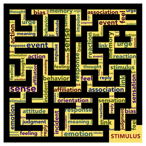 According to psychological research, we humans do indeed believe people are prone to bias… but only others, of course. We tend to believe that our actions and reactions are exempt from conscious or subconscious biases, but others are certainly capable of bias.
According to psychological research, we humans do indeed believe people are prone to bias… but only others, of course. We tend to believe that our actions and reactions are exempt from conscious or subconscious biases, but others are certainly capable of bias.
Researchers of human behavior believe that bias and stereotypical thinking are the result of our evolutionary response to survival. We have learned over the centuries to quickly categorize and evaluate other people and our surroundings on both conscious and subconscious levels so that we can make snap judgments and decisions that keep us alive. Researchers also believe that our environment and the culture surrounding us before we reach the age of five influence our biases, as well. (Source: Psychology Today)
But regardless of our evolutionary proclivities or immediate surroundings or past cultural environments, there is a way to shed our biases when we’re writing. When choosing our diction, pronouns, and subject matter, we have an opportunity to evaluate words on the page repeatedly before we share them with others.
Types of Bias in Writing
Bias is typically understood as being a hurtful or harmful stereotype or prejudice that is conveyed from one person or group of persons to another through hurtful language or harmful actions. Bias can be intentional or unintentional, but it’s most often conveyed unintentionally.
As we’re writing our words and evaluating them for bias, it’s important to first be aware of what types of biases exist so that we can carefully consider them.
- Gender- Bias against a certain gender or individual who does not identify with a specific gender
- Racial- Bias against a racial group or all other races different from one’s own racial group
- Ethnic- Bias against an ethnic group or all other ethnicities different from one’s own ethnic group
- Cultural- Bias against a cultural group or all other cultures different from one’s own cultural group
- Socio-Economic- Bias against a socio-economic group or all other socio-economic groups different from one’s own socio-economic group
- Abilities- Bias against those who have a cognitive or physical handicap
- Age- Bias against those in an age group or generation different from one’s own
- Educational- Bias against those who have an educational background different from our own
- Political- Bias against those who have a political belief system different from our own
(If we missed one, let us know in the comments below so that we can all keep it in mind as we’re writing.)
It’s All About Adjectives, Descriptive Language, and Diction
Most biased writing boils down to the adjectives, pronouns, and descriptive language we decide to use, and our diction overall. Consider the following examples of biased sentences provided by Walden University’s Writing Center:
- Third-grade boys are chronically disruptive, while the girls are always eager to please.
- The teacher should use technology when she is teaching her class.
- Family is very important to the Hispanic population in my town.
- I surveyed older adults while collecting data.
- The epileptics consulted with specialists during the trial to address their particular needs.
Often when we’re being biased in our writing, it’s because we’re describing people and what they’re doing or where they are from in a way that includes offensive, stereotypical, or overly generalized terms, phrases, or language. We’re biased when we describe an entire group of people as owning a similar quality or belief, or when we use one pronoun to describe people who practice a certain profession or who own a certain behavioral characteristic. And so on.
How would you rewrite the above example sentences so that they’re unbiased? Rewrite them and then visit the link provided above to Walden University’s Writing Center online to see if you came up with the same responses listed there. Share your responses with us in the comments below.
Quick Checklist: How to Avoid Bias in Your Writing
We all have innate and subconscious biases to recognize and confront. One could argue that it’s actually much easier to do this when writing because you can reevaluate your words until you hand them over to someone else to read.
If you’re sincerely interested in avoiding bias in your writing, here are a few things you can do.
- Always check your assumptions and beliefs and be as honest with yourself as possible.
- Avoid euphemisms or colloquialisms that won’t appeal to all your readers or won’t apply to every person.
- Edit and proofread your text, and then have someone else scan it multiple times too.
- Consider your diction and descriptive language.
- Practice parallel construction as you write to ensure that each individual or group of people you’re referring to is being described and referred to in the same way.
- Check your pronouns constantly and how you use “he,” “she,” and “it.”
- Try to remain as objective as possible when it’s necessary to do so.
- Conduct and rely on reliable research. Whenever you’re writing about a person or group, ask yourself, “Says who?” or “Is this a factual statement backed up by substantial and reliable evidence?”
- Take a third-person point of view when you’re writing and imagine that you are referring to yourself.
Do you have another rule of thumb you apply when writing to make sure you remain as unbiased as possible? Share with us in the comments below.




